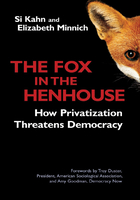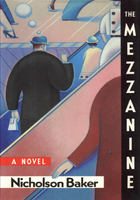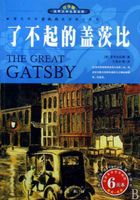EFFICIENCY THROUGH CHANGE OF PACE
Hear how he clears the points o' Faith Wi'rattlin' an' thumpin'! Now meekly calm, now wild in wrath, He's stampin' an' he's jumpin'.
—ROBERT BURNS, Holy Fair.
The Latins have bequeathed to us a word that has no precise equivalent in our tongue, therefore
we have accepted it, body unchanged—it is the word tempo, and means rate of movement, as measured by the time consumed in executing that movement.
Thus far its use has been largely limited to the vocal and musical arts, but it would not be surprising to hear tempo applied to more concrete matters, for it perfectly illustrates the real meaning of the word to say that an ox-cart moves in slow tempo, an express train in a fast tempo. Our guns that fire six hundred times a minute, shoot at a fast tempo; the old muzzle loader that required three minutes to load, shot at a slow tempo. Every musician understands this principle: it requires longer to sing a half note than it does an eighth note.
Now tempo is a tremendously important element in good platform work, for when a speaker delivers a whole address at very nearly the same rate of speed he is depriving himself of one of his chief means of emphasis and power. The baseball pitcher, the bowler in cricket, the tennis server, all know the value of change of pace—change of tempo—in delivering their ball, and so must the public speaker observe its power.
Change of Tempo Lends Naturalness to the Delivery
Naturalness, or at least seeming naturalness, as was explained in the chapter on "Monotony," is greatly to be desired, and a continual change of tempo will go a long way towards establishing it. Mr. Howard Lindsay,Stage Manager for Miss Margaret Anglin, recently said to the present writer that change of pace was one of the most effective tools of the actor. While it must be admitted that the stilted mouthings of many actors indicate cloudy mirrors, still the public speaker would do well to study the actor's use of tempo.
There is, however, a more fundamental and effective source at which to study naturalness—a trait which,once lost, is shy of recapture: that source is the common conversation of any well-bred circle. This is the standard we strive to reach on both stage and platform—with certain differences, of course, which will appear as we go on. If speaker and actor were to reproduce with absolute fidelity every variation of utterance—every whisper, grunt, pause, silence, and explosion—of conversation as we find it typically in everyday life, much of the interest would leave the public utterance. Naturalness in public address is something more than faithful reproduction of nature—it is the reproduction of those typical parts of nature's work which are truly representative of the whole.
The realistic story-writer understands this in writing dialogue, and we must take it into account in seeking for naturalness through change of tempo.
Suppose you speak the first of the following sentences in a slow tempo, the second quickly, observing how natural is the effect. Then speak both with the same rapidity and note the difference.
I can't recall what I did with my knife. Oh, now I remember I gave it to Mary.
We see here that a change of tempo often occurs in the same sentence—for tempo applies not only to single words, groups of words, and groups of sentences, but to the major parts of a public speech as well.
QUESTIONS AND EXERCISES
1. In the following, speak the words "long, long while" very slowly; the rest of the sentence is
spoken in moderately rapid tempo.
When you and I behind the Veil are past, Oh but the long, long while the world shall last, Which of our coming and departure heeds, As the seven seas should heed a pebble cast.
Note: In the following selections the passages that should be given a fast tempo are in italics; those that should be given in a slow tempo are in small capitals.Practise these selections, and then try others, changing from fast to slow tempo on different parts, carefully noting the effect.
2. No MIRABEAU, NAPOLEON, BURNS,CROMWELL, NO man ADEQUATE to DO ANYTHING but is first of all in RIGHT EARNEST about it—what I call A SINCERE man. I should say SINCERITY, a GREAT, DEEP, GENUINE SINCERITY, is the first CHARACTERISTIC of a man in any way HEROIC. Not the sincerity that CALLS itself sincere. Ah no. That is a very poor matter indeed—A SHALLOW, BRAGGART,CONSCIOUS sincerity, oftenest SELF-CONCEIT mainly. The GREAT MAN'S SINCERITY is of a kind he CANNOT SPEAK OF. Is NOT CONSCIOUS of.—
THOMAS CARLYLE.
3. TRUE WORTH is in BEING—NOT SEEMING—in doing each day that goes by SOME LITTLE GOOD, not in DREAMING of GREAT THINGS to do by and by. For whatever men say in their BLINDNESS, and in spite of the FOLLIES of YOUTH, there is nothing so KINGLY as KINDNESS,and nothing so ROYAL as TRUTH.—Anonymous.
4. To get a natural effect, where would you use slow and where fast tempo in the following?
FOOL'S GOLD
See him there, cold and gray,
Watch him as he tries to play;
No, he doesn't know the way—He began to learn too late.
She's a grim old hag, is Fate,
For she let him have his pile,
Smiling to herself the while,
Knowing what the cost would be, When he'd found the Golden Key.
Multimillionaire is he,
Many times more rich than we;
But at that I wouldn't trade
With the bargain that he made. Came here many years ago,
Not a person did he know;
Had the money-hunger bad—Mad for money, piggish mad;
Didn't let a joy divert him,
Didn't let a sorrow hurt him,
Let his friends and kin desert him,
While he planned and plugged and hurried On his quest for gold and power.
Every single wakeful hour
With a money thought he'd dower;
All the while as he grew older,
And grew bolder, he grew colder. And he thought that some day
He would take the time to play; But, say—he was wrong.
Life's a song;
In the spring
Youth can sing and can fling; But joys wing
When we're older,
Like birds when it's colder.
The roses were red as he went rushing by,And glorious tapestries hung in the sky,And the clover was waving
'Neath honey-bees' slaving;
A bird over there
Roundelayed a soft air;
But the man couldn't spare Time for gathering flowers,
Or resting in bowers,
Or gazing at skies
That gladdened the eyes.
So he kept on and swept on Through mean, sordid years.
Now he's up to his ears
In the choicest of stocks.
He owns endless blocks
Of houses and shops,
And the stream never stops Pouring into his banks.
I suppose that he ranks
Pretty near to the top.
What I have wouldn't sop His ambition one tittle;
And yet with my little
I don't care to trade
With the bargain he made. Just watch him to-day—
See him trying to play.
He's come back for blue skies.
But they're in a new guise—
Winter's here, all is gray,
The birds are away,
The meadows are brown,
The leaves lie aground,
And the gay brook that wound With a swirling and whirling Of waters, is furling
Its bosom in ice.
And he hasn't the price,
With all of his gold,
To buy what he sold.
He knows now the cost
Of the spring-time he lost, Of the flowers he tossed
From his way,
And, say,
He'd pay
Any price if the day
Could be made not so gray.
He can't play.
—HERBERT KAUFMAN.
Change of Tempo Prevents Monotony
The canary in the cage before the window is adding to the beauty and charm of his singing by a continual change of tempo. If King Solomon had been an orator he undoubtedly would have gathered wisdom from the song of the wild birds as well as from the bees.Imagine a song written with but quarter notes. Imagine an auto with only one speed.
EXERCISES
1. Note the change of tempo indicated in the following, and how it gives a pleasing variety. Read it aloud. (Fast tempo is indicated by italics, slow by small capitals.)
And he thought that some day he would take the time to play; but, say—HE WAS WRONG. LIFE'S A SONG; in the SPRING YOUTH can SING and can FLING; BUT JOYS WING WHEN WE'RE OLDER, LIKE THE BIRDS when it's COLDER. The roses were red as he went rushing by, and glorious tapestries hung in the sky.
2. Turn to "Fools Gold," and deliver it in an unvaried tempo: note how monotonous is the result. This poem requires a great many changes of tempo, and is an excellent one for practise.
3. Use the changes of tempo indicated in the following, noting how they prevent monotony. Where no change of tempo is indicated, use a moderate speed. Too much of variety would really be a return to monotony.
THE MOB
"A MOB KILLS THE WRONG MAN" was flashed in a newspaper headline lately. The mob is a IRRESPONSIBLE, UNTHINKING MASS. It always destroys BUT NEVER CONSTRUCTS. It criticises BUT NEVER CREATES.
Utter a great truth AND THE MOB WILL HATE YOU. See how it condemned DANTE to EXILE. Encounter the dangers of the unknown world for its benefit, AND THE MOB WILL DECLARE YOU CRAZY. It ridiculed COLUMBUS, and for discovering a new world GAVE HIM PRISON AND CHAINS.
Write a poem to thrill human hearts with pleasure,AND THE MOB WILL ALLOW YOU TO GO HUNGRY: THE BLIND HOMER BEGGED BREAD THROUGH THE STREETS. Invent a machine to save labor AND THE MOB WILL DECLARE YOU ITS ENEMY. Less than a hundred years ago a furious rabble smashed Thimonier's invention, the sewing machine.
B U I L D A S T E AM S H I P T O C ARRY MERCHANDISE AND ACCELERATE TRAVEL and the mob will call you a fool. A MOB LINED THE SHORES OF THE HUDSON RIVER TO LAUGH AT THE MAIDEN ATTEMPT OF "FULTON'S FOLLY,"
as they called his little steamboat.
Emerson says: "A mob is a society of bodies voluntarily bereaving themselves of reason and traversing its work. The mob is man voluntarily descended to the nature of the beast. Its fit hour of activity is NIGHT. ITS ACTIONS ARE INSANE, like its whole constitution. It persecutes a principle—IT WOULD WHIP A RIGHT. It would tar and feather justice by inflicting fire and outrage upon the house and persons of those who have these."
The mob spirit stalks abroad in our land today.Every week gives a fresh victim to its malignant cry for blood. There were 48 persons killed by mobs in the United States in 1913; 64 in 1912, and 71 in 1911.Among the 48 last year were a woman and a child. Two victims were proven innocent after their death.
IN 399 B.C. A DEMAGOG APPEALED TO THE POPULAR MOB TO HAVE SOCRATES PUT TO DEATH and he was sentenced to the hemlock cup.FOURTEEN HUNDRED YEARS AFTERWARD AN ENTHUSIAST APPEALED TO THE POPULAR MOB and all Europe plunged into the Holy Land to kill and mangle the heathen. In the seventeenth century a demagog appealed to the ignorance of men AND TWENTY PEOPLE WERE EXECUTED AT SALEM, MASS., WITHIN SIX MONTHS FOR WITCHCRAFT. Two thousand years ago the mob yelled, "RELEASE UNTO US BARABBAS"—AND BARABBAS WAS A MURDERER!
—From an Editorial by D.C. in "Leslie's Weekly," by permission.
Present-day business is as unlike OLD-TIME BUSINESS as the OLD-TIME OX-CART is unlike the present-day locomotive INVENTION has made the whole world over again. The railroad, telegraph,telephone have bound the people of MODERN NATIONS into FAMILIES. To do the business of these closely knit millions in every modern country GREAT BUSINESS CONCERNS CAME INTO BEING. What we call big business is the CHILD OF THE ECONOMIC PROGRESS OF MANKIND.So warfare to destroy big business is FOOLISH BECAUSE IT CAN NOT SUCCEED and wicked BECAUSE IT OUGHT NOT TO SUCCEED. Warfare to destroy big business does not hurt big business,which always comes out on top, SO MUCH AS IT HURTS ALL OTHER BUSINESS WHICH, IN SUCH A WARFARE, NEVER COME OUT ON TOP.
—A.J. BEVERIDGE.
Change of Tempo Produces Emphasis
Any big change of tempo is emphatic and will catch the attention. You may scarcely be conscious that a passenger train is moving when it is flying over the rails at ninety miles an hour, but if it slows down very suddenly to a ten-mile gait your attention will be drawn to it very decidedly. You may forget that you are listening to music as you dine, but let the orchestra either increase or diminish its tempo in a very marked degree and your attention will be arrested at once.
This same principle will procure emphasis in a speech. If you have a point that you want to bring home to your audience forcefully, make a sudden and great change of tempo, and they will be powerless to keep from paying attention to that point. Recently the present writer saw a play in which these lines were spoken:
"I don't want you to forget what I said. I want you to remember it the longest day you—I don't care if you've got six guns." The part up to the dash was delivered in a very slow tempo, the remainder was named out at lightning speed, as the character who was spoken to drew a revolver. The effect was so emphatic that the lines are remembered six months afterwards, while most of the play has faded from memory. The student who has powers of observation will see this principle applied by all our best actors in their efforts to get emphasis where emphasis is due. But remember that the emotion in the matter must warrant the intensity in the manner, or the effect will be ridiculous. Too many public speakers are impressive over nothing.
Thought rather than rules must govern you while practising change of pace. It is often a matter of no consequence which part of a sentence is spoken slowly and which is given in fast tempo. The main thing to be desired is the change itself. For example,in the selection, "The Mob," note the last paragraph.Reverse the instructions given, delivering everything that is marked for slow tempo, quickly; and everything that is marked for quick tempo, slowly. You will note that the force or meaning of the passage has not been destroyed.
However, many passages cannot be changed to a slow tempo without destroying their force. Instances:The Patrick Henry speech, and the following passage from Whittier's "Barefoot Boy."
O for boyhood's time of June, crowding years in one brief moon, when all things I heard or saw, me, their master, waited for. I was rich in flowers and trees,humming-birds and honey-bees; for my sport the squirrel played; plied the snouted mole his spade; for my taste the blackberry cone purpled over hedge and stone; laughed the brook for my delight through the day and through the night, whispering at the garden wall, talked with me from fall to fall; mine the sandrimmed pickerel pond; mine the walnut slopes beyond;mine, an bending orchard trees, apples of Hesperides!Still, as my horizon grew, larger grew my riches,too; all the world I saw or knew seemed a complex Chinese toy, fashioned for a barefoot boy!
—J.G. WHITTIER.
Be careful in regulating your tempo not to get your movement too fast. This is a common fault with amateur speakers. Mrs. Siddons rule was, "Take time."A hundred years ago there was used in medical circles a preparation known as "the shot gun remedy;" it was a mixture of about fifty different ingredients, and was given to the patient in the hope that at least one of them would prove efficacious! That seems a rather poor scheme for medical practice, but it is good to use "shot gun" tempo for most speeches, as it gives a variety. Tempo, like diet, is best when mixed.
QUESTIONS AND EXERCISES
1. Define tempo
2. What words come from the same root?
3. What is meant by a change of tempo?
4. What effects are gained by it?
5. Name three methods of destroying monotony and gaining force in speaking.
6. Note the changes of tempo in a conversation or speech that you hear. Were they well made? Why? Illustrate.
7. Read selections of this chapter, paying careful attention to change of tempo.
8. As a rule, excitement, joy, or intense anger take a fast tempo, while sorrow, and sentiments of great dignity or solemnity tend to a slow tempo. Try to deliver Lincoln's Gettysburg speech in a fast tempo, or Patrick Henry's speech in a slow tempo, and note how ridiculous the effect will be.
Practise the following selections, noting carefully where the tempo may be changed to advantage.Experiment, making numerous changes. Which one do you like best?
DEDICATION OF GETTYSBURG CEMETERY
Fourscore and seven years ago, our fathers brought forth upon this continent a new nation, conceived in liberty and dedicated to the proposition that all men are created equal. Now we are engaged in a great civil war, testing whether that nation—or any nation so conceived and so dedicated—can long endure.
We are met on a great battlefield of that war. We are met to dedicate a portion of it as the final resting-place of those who have given their lives that that nation might live. It is altogether fitting and proper that we should do this.
But, in a larger sense, we cannot dedicate, we cannot consecrate, we cannot hallow, this ground.The brave men, living and dead, who struggled here,have consecrated it, far above our power to add or to detract. The world will very little note nor long remember what we say here; but it can never forget what they did here.
It is for us, the living, rather, to be dedicated here to the unfinished work they have thus far so nobly carried on. It is rather for us to be here dedicated to the great task remaining before us: that from these honored dead we take increased devotion to that cause for which they here gave the last full measure of devotion; that we here highly resolve that these dead shall not have died in vain; that the nation shall, under God, have a new birth of freedom, and that government of the people, by the people, for the people, shall not perish from the earth.
—ABRAHAM LINCOLN.
A PLEA FOR CUBA
[This deliberative oration was delivered by Senator Thurston in the United States Senate on March 24,1898. It is recorded in full in the Congressional Record of that date. Mrs. Thurston died in Cuba. As a dying request she urged her husband, who was investigating affairs in the island, to do his utmost to induce the United States to intervene—hence this oration.]
Mr. President, I am here by command of silent lips to speak once and for all upon the Cuban situation.I shall endeavor to be honest, conservative, and just.I have no purpose to stir the public passion to any action not necessary and imperative to meet the duties and necessities of American responsibility, Christian humanity, and national honor. I would shirk this task if I could, but I dare not. I cannot satisfy my conscience except by speaking, and speaking now.
I went to Cuba firmly believing that the condition of affairs there had been greatly exaggerated by the press, and my own efforts were directed in the first instance to the attempted exposure of these supposed exaggerations. There has undoubtedly been much sensationalism in the journalism of the time, but as to the condition of affairs in Cuba, there has been no exaggeration, because exaggeration has been impossible.
Under the inhuman policy of Weyler not less than four hundred thousand self-supporting, simple,peaceable, defenseless country people were driven from their homes in the agricultural portions of the Spanish provinces to the cities, and imprisoned upon the barren waste outside the residence portions of these cities and within the lines of intrenchment established a little way beyond. Their humble homes were burned,their fields laid waste, their implements of husbandry destroyed, their live stock and food supplies for the most part confiscated. Most of the people were old men, women, and children. They were thus placed in hopeless imprisonment, without shelter or food. There was no work for them in the cities to which they were driven. They were left with nothing to depend upon except the scanty charity of the inhabitants of the cities and with slow starvation their inevitable fate....The pictures in the American newspapers of the starving reconcentrados are true. They can all be duplicated by the thousands. I never before saw, and please God I may never again see, so deplorable a sight as the reconcentrados in the suburbs of Matanzas.I can never forget to my dying day the hopeless anguish in their despairing eyes. Huddled about their little bark huts, they raised no voice of appeal to us for alms as we went among them....
Men, women, and children stand silent, famishing with hunger. Their only appeal comes from their sad eyes, through which one looks as through an open window into their agonizing souls.
The government of Spain has not appropriated and will not appropriate one dollar to save these people. They are now being attended and nursed and administered to by the charity of the United States.Think of the spectacle! We are feeding these citizens of Spain; we are nursing their sick; we are saving such as can be saved, and yet there are those who still say it is right for us to send food, but we must keep hands off. I say that the time has come when muskets ought to go with the food.
We asked the governor if he knew of any relief for these people except through the charity of the United States. He did not. We asked him, "When do you think the time will come that these people can be placed in a position of self-support?" He replied to us, with deep feeling, "Only the good God or the great government of the United States will answer that question." I hope and believe that the good God by the great government of the United States will answer that question.
I shall refer to these horrible things no further.They are there. God pity me, I have seen them; they will remain in my mind forever—and this is almost the twentieth century. Christ died nineteen hundred years ago, and Spain is a Christian nation. She has set up more crosses in more lands, beneath more skies,and under them has butchered more people than all the other nations of the earth combined. Europe may tolerate her existence as long as the people of the Old World wish. God grant that before another Christmas morning the last vestige of Spanish tyranny and oppression will have vanished from the Western Hemisphere!...
The time for action has come. No greater reason for it can exist to-morrow than exists to-day. Every hour's delay only adds another chapter to the awful story of misery and death. Only one power can intervene—the United States of America. Ours is the one great nation in the world, the mother of American republics. She holds a position of trust and responsibility toward the peoples and affairs of the whole Western Hemisphere.It was her glorious example which inspired the patriots of Cuba to raise the flag of liberty in her eternal hills.We cannot refuse to accept this responsibility which the God of the universe has placed upon us as the one great power in the New World. We must act! What shall our action be?
Against the intervention of the United States in this holy cause there is but one voice of dissent; that voice is the voice of the money-changers. They fear war!Not because of any Christian or ennobling sentiment against war and in favor of peace, but because they fear that a declaration of war, or the intervention which might result in war, would have a depressing effect upon the stock market. Let them go. They do not represent American sentiment; they do not represent American patriotism. Let them take their chances as they can. Their weal or woe is of but little importance to the liberty-loving people of the United States. They will not do the fighting; their blood will not flow; the will keep on dealing in options on human life. Let the men whose loyalty is to the dollar stand aside while the men whose loyalty is to the flag come to the front Mr. President, there is only one action possible, if any is taken; that is, intervention for the independence of the island. But we cannot intervene and save Cuba without the exercise of force, and force means war;war means blood. The lowly Nazarene on the shores of Galilee preached the divine doctrine of love, "Peace on earth, good will toward men." Not peace on earth at the expense of liberty and humanity. Not good will toward men who despoil, enslave, degrade, and starve to death their fellow-men. I believe in the doctrine of Christ. I believe in the doctrine of peace; but, Mr.President, men must have liberty before there can come abiding peace.
Intervention means force. Force means war. War means blood. But it will be God's force. When has a battle for humanity and liberty ever been won except by force? What barricade of wrong, injustice, and oppression has ever been carried except by force?
Force compelled the signature of unwilling royalty to the great Magna Charta; force put life into the Declaration of Independence and made effective the Emancipation Proclamation; force beat with naked hands upon the iron gateway of the Bastile and made reprisal in one awful hour for centuries of kingly crime; force waved the flag of revolution over Bunker Hill and marked the snows of Valley Forge with blood-stained feet; force held the broken line of Shiloh, climbed the flame-swept hill at Chattanooga,and stormed the clouds on Lookout Heights; force marched with Sherman to the sea, rode with Sheridan in the valley of the Shenandoah, and gave Grant victory at Appomattox; force saved the Union, kept the stars in the flag, made "niggers" men. The time for God's force has come again. Let the impassioned lips of American patriots once more take up the song:—
"In the beauty of the lilies, Christ was born across the sea. With a glory in His bosom that transfigures you and me; As He died to make men holy, let us die to make men free. While God is marching on."
Others may hesitate, others may procrastinate, others may plead for further diplomatic negotiation, which means delay; but for me, I am ready to act now, and for my action I am ready to answer to my conscience,my country, and my God.
—JAMES MELLEN THURSTON.















